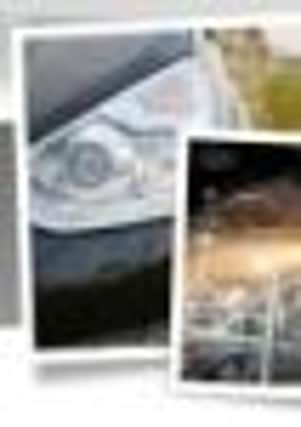Repairs? Look out for Kitemark


Developed by British Standards Institute (BSI) and Thatcham, the Motor Industry repair Research Centre, this Kitemark scheme is based on the technical specification – PAS 125 and accredited by the United Kingdom Accreditation Service (UKAS). UKAS is the sole national accreditation body recognised by government to assess, against internationally agreed standards.
Run by BSI, the Kitemark scheme is completely independent and impartial.
Advertisement
Hide AdAdvertisement
Hide AdAny vehicle body repair business – large or small, independent or franchise – operating from fixed premises or mobile facilities can apply for a Kitemark licence.
However, standards are very rigorous and only the very best attain PAS 125 accreditation.
The PAS 125 Vehicle Body Repair Scheme includes cosmetic repairs covering basic damage to paint or bodywork such as small dents, bumper rubs, scuffs, minor paint or panel damage.
The scheme also covers the repair of structural steel which involves the replacement and repair of quarter, rear or sill panels, welded and bonded parts and all severe repair damage.
Advertisement
Hide AdAdvertisement
Hide AdIn addition to this PAS 125 coverage also includes structural work on specialist vehicles using specific methods in composite construction techniques when handling aluminium, carbon fibre and plastics.
The Kitemark Scheme focuses on five key elements of the repair process, the people carrying out the work, the methods that are used, the type and quality of the materials handled and used during repairs, the standard and level of the equipment used during the repair process and the actual management of the repair process itself.
To achieve the Kitemark a repairer has first to demonstrate conformity with the stringent requirements of the Kitemark scheme protocol and PAS 125 through an initial audit arranged by the BSI.
This visit by inspectors includes an audit of the vehicle repair process and related activities.
Advertisement
Hide AdAdvertisement
Hide AdRegular audits are then performed to ensure that high standards continue to be maintained.
n Benefits to customers
Whether the customer is an insurance company or a member of the public all will have confidence in the overall quality of the repair undertaken.
They can trust that a vehicle will have been repaired to the very highest standards, that there’s consistency in the quality of the repair work performed, and above all, they’ll gain the reassurance that the vehicle has been repaired to meet the highest safety standards.
The Kitemark demonstrates that safe repairs have been undertaken therefore protecting the lives of consumers and indeed all road users.
n Benefits for bodyshops
Advertisement
Hide AdAdvertisement
Hide AdWith the Kitemark recognised by 82 per cent of the UK adult population*, obtaining a Kitemark licence for vehicle body repair will have a positive impact on the future of a bodyshop’s business and its reputation in the market place.
The Kitemark also allows bodyshops to prove that they are serious about safety.
As a result, a bodyshop is likely to receive more work and therefore additional business security ensuring that it attracts and retains business as well as having a route to growth.
The PAS 125 Kitemark Scheme offers a blue print for better, more efficient business performance and reduces the opportunity for mistakes.
Advertisement
Hide AdAdvertisement
Hide AdIt reduces costs and waste and can improve levels of profit which is essential for any business to flourish.
The Scheme reduces risk and enhances corporate responsibility on behalf of staff, retail customers and vehicle users. It also shows a company’s due diligence and duty of care to the industry in which it is a part.
* GFKNOP Survey